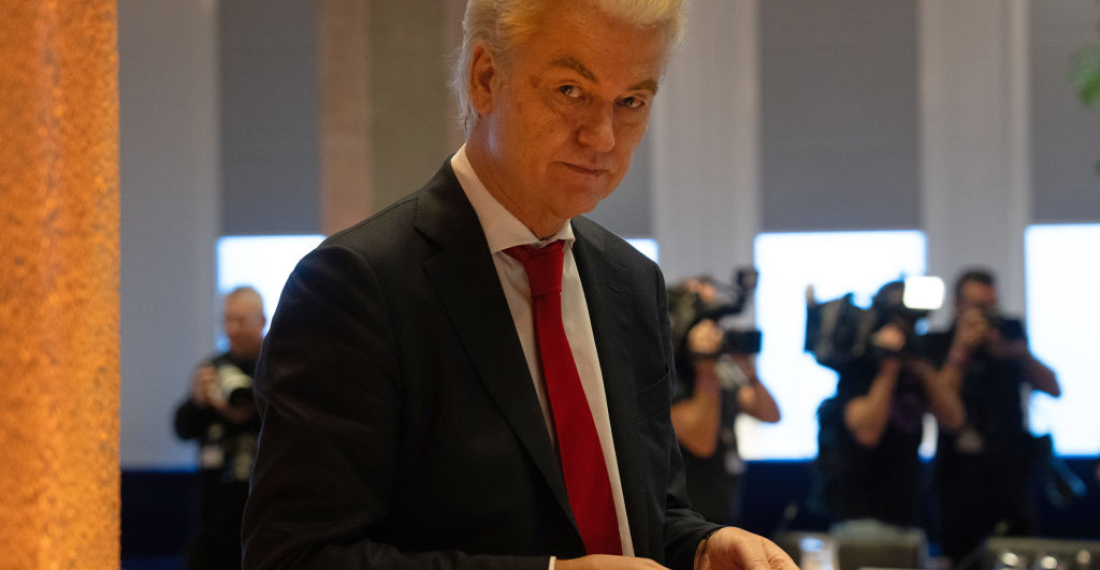The Dutch government coalition has collapsed after far-right leader Geert Wilders pulled his party out of the ruling four-party coalition on Tuesday in a dispute over a crackdown on migration, triggering a political crisis just three weeks before the Netherlands is scheduled to host a summit of NATO leaders in The Hague. Wilders announced his decision in a message on X after a brief meeting in parliament of leaders of the four parties that make up the fractious administration. Prime Minister Dick Schoof called an emergency Cabinet meeting for the afternoon and new elections may be called for later this year.
Wilders told reporters that he was withdrawing his support for the coalition and pulling his ministers out of the Cabinet over its failure to act on his desire for a clampdown on migration. “I signed up for the toughest asylum policy and not the downfall of the Netherlands,” said Wilders, whose Party for Freedom is still riding high in Dutch opinion polls, though the gap with the center-left opposition is negligible.
Dilan Yesilgöz, leader of the right-wing People’s Party for Freedom and Democracy, said before the meeting that Schoof urged the leaders to act responsibly. “The prime minister who appealed to us this morning said that we are facing enormous international challenges, we have a war on our continent, an economic crisis may be coming our way,” Yesilgöz told reporters in parliament. But just minutes later, the meeting was over and so was Wilders’ involvement in the government. “I’m shocked,” Yesilgöz said, calling Wilders’ decision “super-irresponsible.”
After years in opposition, Wilders’ party won the last election on pledges to slash migration. He has grown increasingly frustrated at what he sees as the slow pace of the coalition’s efforts to implement his plans. Last week, Wilders demanded coalition partners sign on to a 10-point plan that aims to radically slash migration, including using the army to guard land borders and turning away all asylum-seekers. He said at the time that if immigration policy is not toughened up, his party “is out of the Cabinet.” He delivered on that pledge on Tuesday.
It is not the first time Wilders has turned his back on power. He pledged his support to a minority government led by former Prime Minister Mark Rutte in 2010, but walked away less than two years later after a dispute about government austerity measures. “You know that if you work with Wilders in a coalition ... it won’t go well,” Rob Jetten, leader of the opposition D66 party, told Dutch broadcaster NOS.
Caroline van der Plas, leader of the pro-agriculture populist Farmers Citizens Movement that is part of the coalition, said she was angry at Wilders’ decision. “He is not putting the Netherlands first, he is putting Geert Wilders first,” she told Dutch broadcaster NOS.
Nicolien van Vroonhoven, leader of the New Social Contract party that has taken a battering in polls since joining the coalition and the departure of its talismanic leader Pieter Omtzigt, said the government could continue without Wilders, saying a minority Cabinet “is definitely an option.”
The Dutch government, the first to include Wilders’ PVV has been in place for less than a year, after months of talks to establish it after the far right won a shock victory in the November 2023 election.
Schoof, a civil servant, was chosen to be prime minister in the right-leaning coalition. But it hasn’t been smooth sailing for him, or the government, with Wilders repeatedly attacking the prime minister and the government in parliament. He has agitated about Schoof’s promise in Brussels of Dutch support for Ukraine and Foreign Minister Caspar Veldkamp’s request for the EU to review its association agreement with Israel.
“If it hadn’t happened today, it would have happened sometime in the next few weeks,” Rob Jetten, the president of the liberal D66 party, told NOS. He criticized the government for making few decisions and having too many “squabbles and crises,” saying the other coalition parties had been taken “hostage” by Wilders.
A new election could dramatically shake up The Netherlands’ political landscape. Two government parties, the BBB and the NSC, were both major winners in the November 2023 elections, but have since tanked in the polls. According to Politico’s Poll of Polls, they’re both at 1 percent.
Wilders’ PVV, too, is polling below its November election result, though still, narrowly, in first place. The Labour and Green Left alliance headed by former Commissioner Frans Timmermans and the liberal VVD party have gained popularity since the 2023 election, polling just slightly behind the Freedom Party.
Timmermans, unsurprisingly, told NOS that he wants elections “as soon as possible.” He ruled out supporting the remaining parties: “With these coalition parties in the current form, it’s not possible to form a stable national government,” he said, according to Politico.
Wilders’ decision comes days after conservative Karol Nawrocki was announced the winner of Poland’s weekend presidential run-off electio, a victory that suggests that Poland will likely take a more populist and nationalist path under its new president, who was backed by U.S. President Donald Trump.







